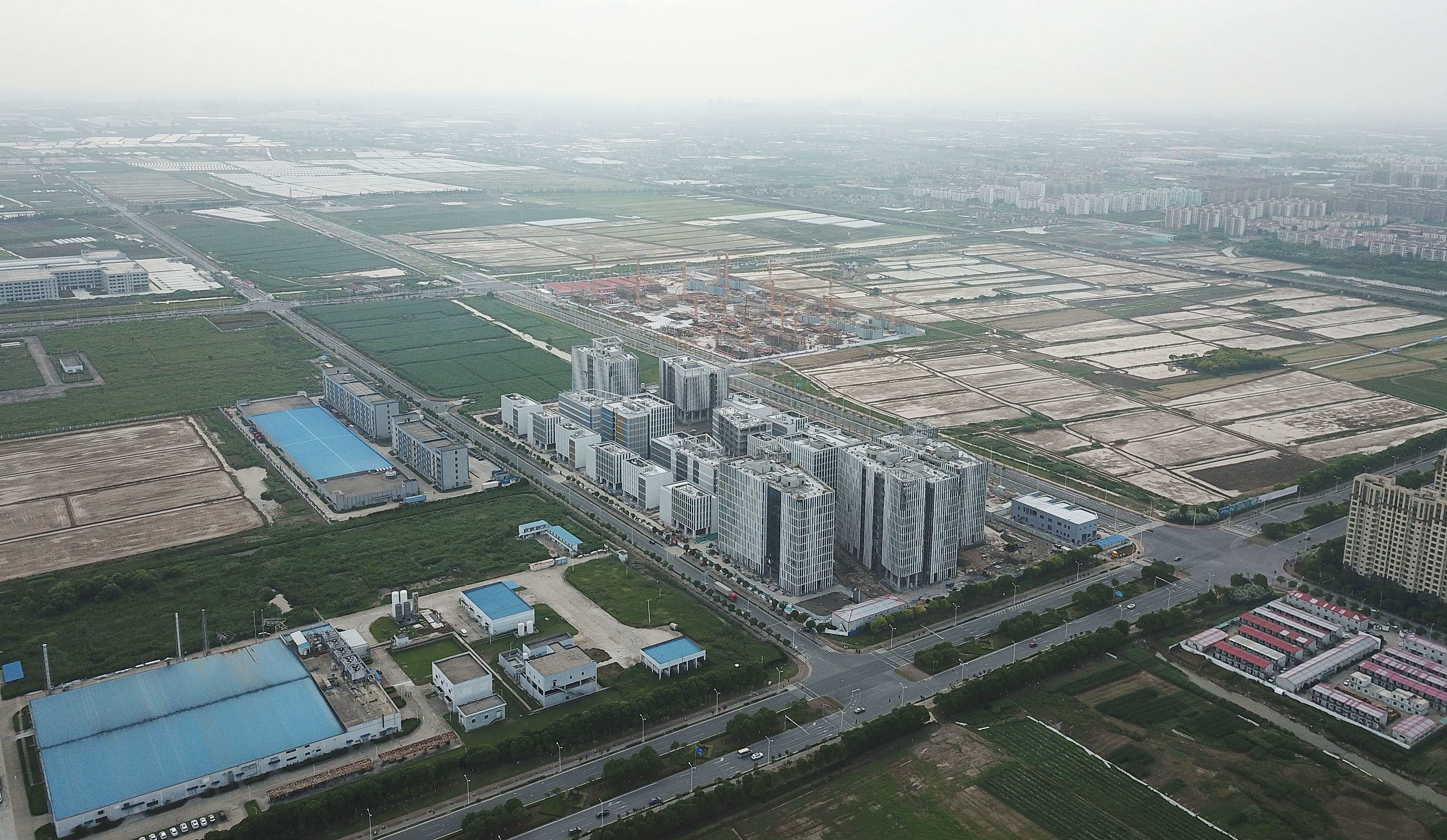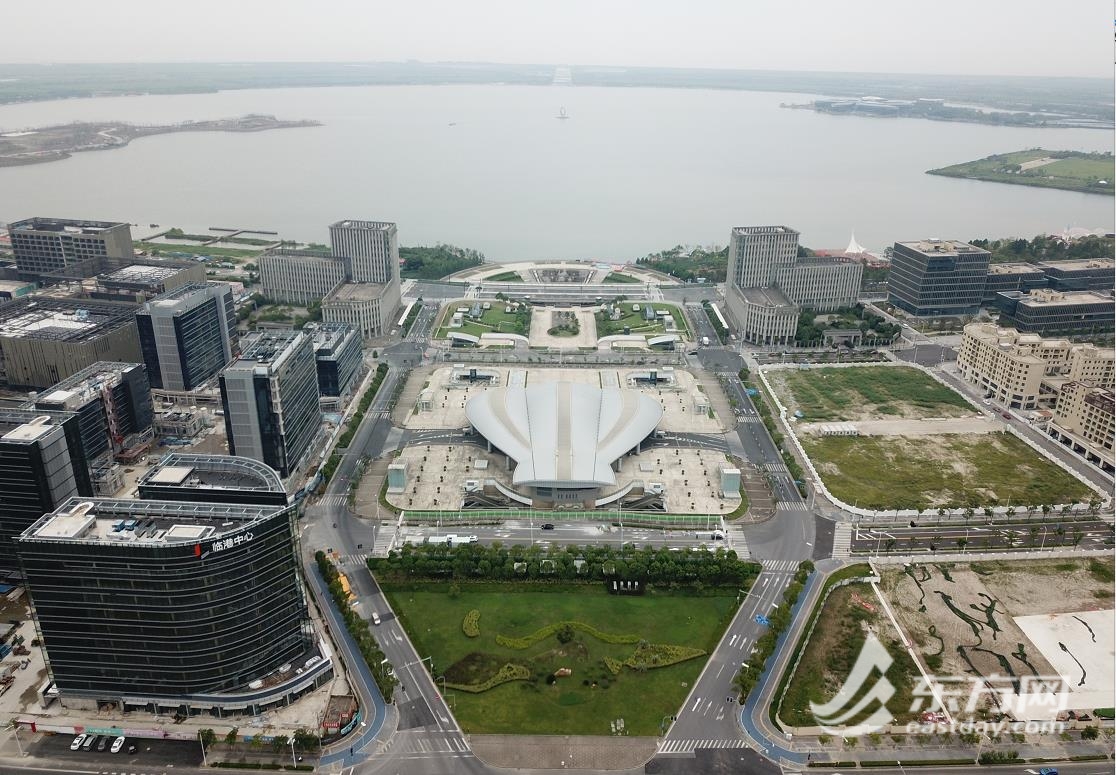What is the next growth pole of Shanghai? The answer, Lin-gang, would have seemed implausible three decades ago, when the place was a deserted wetland overgrown with reeds. Today, it is a newly expanded area of the China (Shanghai) Pilot Free Trade Zone.
Described as a city of the future, Lin-gang, around 70 kilometers away from downtown, is expected to be a hot spot for global investment and talent.
The Lin-gang New Area, inaugurated in August 20, 2019, has turned one year old.

(A bird’s-eye view of Lin-gang New Area. Photo/Xinhua)
Over the past year, over half of the 78 policy and system innovation tasks have been accomplished. One hundred and seven policies have been issued, and 358 contracts have been signed with a total investment of 271.3 billion RMB. Despite the COVID-19 epidemic this year, from January to July, the industrial investment increased by 69.8% and the gross industrial output value grew by 26% year-on-year.
The business environment in Lin-gang has also been improving, through a range of investment-facilitating systems following international rules. The place is now home to China’s first joint venture wealth management company and it took the lead in allowing the establishment of business institutions by well-known overseas arbitration institutions.
Since last August, 15,115 new enterprises have registered in Lin-gang, an increase of 70% year-on-year, and the registered capital has exceeded 200 billion RMB, up by 313%.
In Lin-gang, the Yangshan Special Comprehensive Bonded Zone, launched on May 16 last year, is the only special comprehensive bonded zone among China’s 151 zones under special regulation of the customs authorities. Deploying special registration, trade control, regional management, statistical systems, information management, and collaborative management, it has carried out 18 contracted projects with industry-leading enterprises from both China and abroad, such as Maersk Asia Pacific Distribution Center and Amazon China’s East China Purchasing and Distribution Center.
Service support for the real economy has also seen a boost. On February 14, 30 detailed regulations were released to promote the financial reform in Lin-gang. More and more influential financial institutions and Fortune 500 companies are being attracted to settle themselves in the Dishui Lake Financial Bay.

(Dishui Lake Financial Bay. Photo/Liu Xiaojing)
For overseas talent, Lin-gang is more open. Foreign talent working for the place can apply for up to five years’ residence permit. On April 30, it issued its first “China green card” (Foreign Permanent Resident ID Card) to an expat. Overseas talent can also sit for China’s vocational qualification exams.
Construction for the International Data Port in Lin-gang has also been launched, to make the place a comprehensive cross-border data hub. With a total investment of over 10 billion RMB, communications infrastructure will be built in the next five years, including a sea optical cable landing station, a cloud computing data center, an edge computing room, and a 5G outdoor macro station. Families in Lin-gang by then will get Internet access up to 1,000Mbps and business offices will get 10,000 Mbps.
Special taxation policies in Lin-gang have been put in place over the past year. The corporate income tax rate has been cut to 15%. The individual income tax for overseas talent will also be reduced in the form of differential subsidies and is now under discussion.
